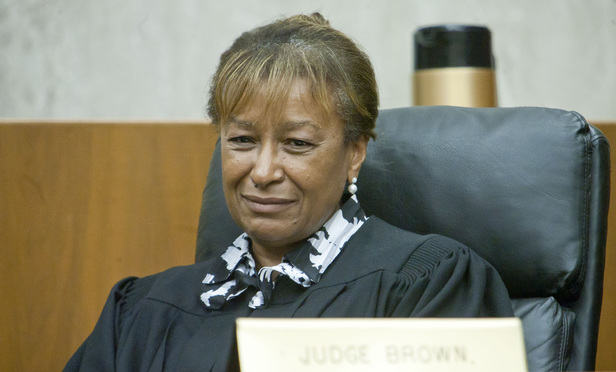With the guise of voluntary consent stripped away, the reality of the District’s regime is revealed. It is a rolling roadblock that sweeps citizens up at random and subjects them to undesired police interactions culminating in a search of their persons and effects. If the Fourth Amendment is intended to offer meaningful protection in the context of Terry stops, the voluntary-consent exemption cannot be used to engage with members of the public en masse and at random to fabricate articulable suspicions for virtually every citizen officers encounter on patrol.
After offering her advice about what a person should say to police during such an encounter, Brown said that if an officer said the person was not free to leave, “then coercion will cease to masquerade as consent. Our courts will be forced, at last, to directly grapple with the reality of the District’s policy of routinized and involuntary seizures.”
A spokesman for the U.S. attorney’s office declined to comment. The Federal Public Defender’s office in Washington argued for defendant Will Gross, whose arrest was at issue in the case. Federal public defender A.J. Kramer said he thought that Brown was “obviously correct.”
Police will “have a tough time ignoring it if somebody says that in the future,” Kramer said, referring to the script Brown provided at the end of her opinion.
Gross was walking in southeast Washington when police officers in a car pulled up next to him. One officer said, “[H]ey, it is the police, how are you doing? Do you have a gun?” Gross didn’t answer. The officer then asked, “Can I see your waistband?” Gross lifted up his jacket and the officers started to drive away.
But another officer in the car was suspicious and asked the driver to stop. As the officer stepped out of the car, he asked Gross if he could check him for a gun. Gross ran away. During the chase, an officer said he saw Gross pat his right side, which the officer suspected might mean he had a gun. The officer caught up to Gross and put him handcuffs. A frisk revealed a .40-caliber semiautomatic handgun.
The D.C. Circuit agreed with the trial judge that Gross wasn’t subjected to an unlawful seizure under the Fourth Amendment when an officer first asked if he was carrying a gun and if he would show his waistband. D.C. Circuit Judges Sri Srinivasan and Harry Edwards heard the case along with Brown.
Gross’ case wasn’t the first time that Brown questioned police tactics. In 2007, Brown wrote a dissenting opinion in another case that addressed the question of when a seizure began under the Fourth Amendment.
“In my view, truly consensual conversation (‘Have you seen this man?’) in which police are on equal terms with ordinary citizens is very different from a confrontation in which police target a particular person because they suspect him to be the criminal described in a police broadcast,” Brown wrote at the time.
In the 2007 case, United States v. Goddard, Brown criticized police officers for stopping a group of black men “conversing peaceably in front of a gas station” as they searched for a suspect described as “a black male, 5’8” to 5’10” in height, about 180 to 190 pounds, wearing a black jacket or coat and blue jeans.”
“Apparently, a ‘lookout’ broadcast encompassing virtually any casually dressed black man in the vicinity made all black males fair game,” Brown wrote. “Such a generic description should never be a sufficient basis for a Terry stop.”





